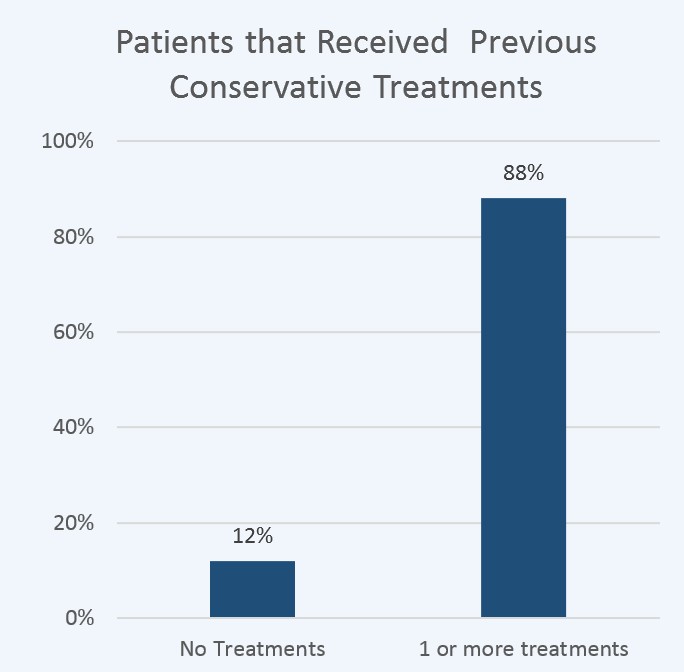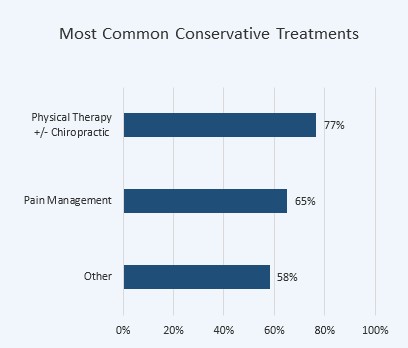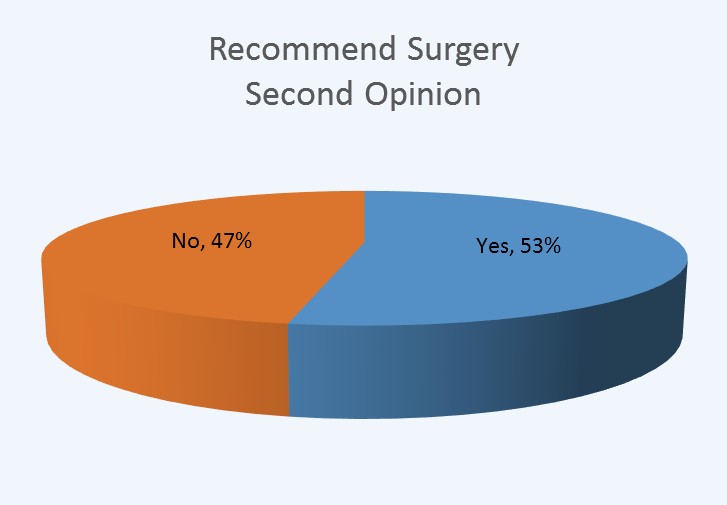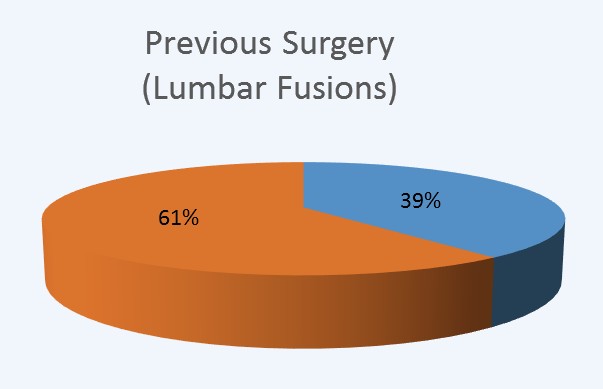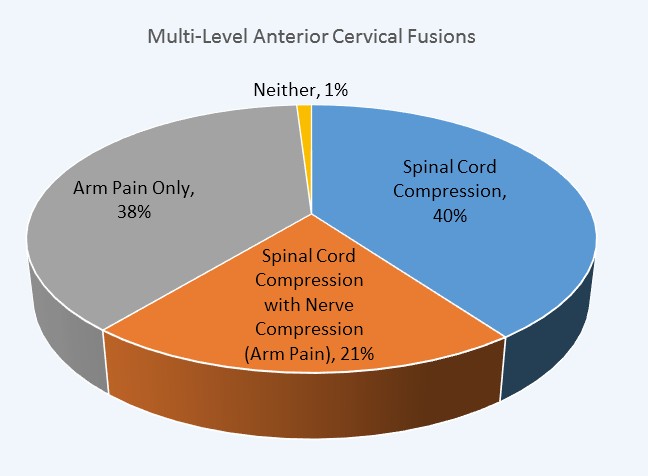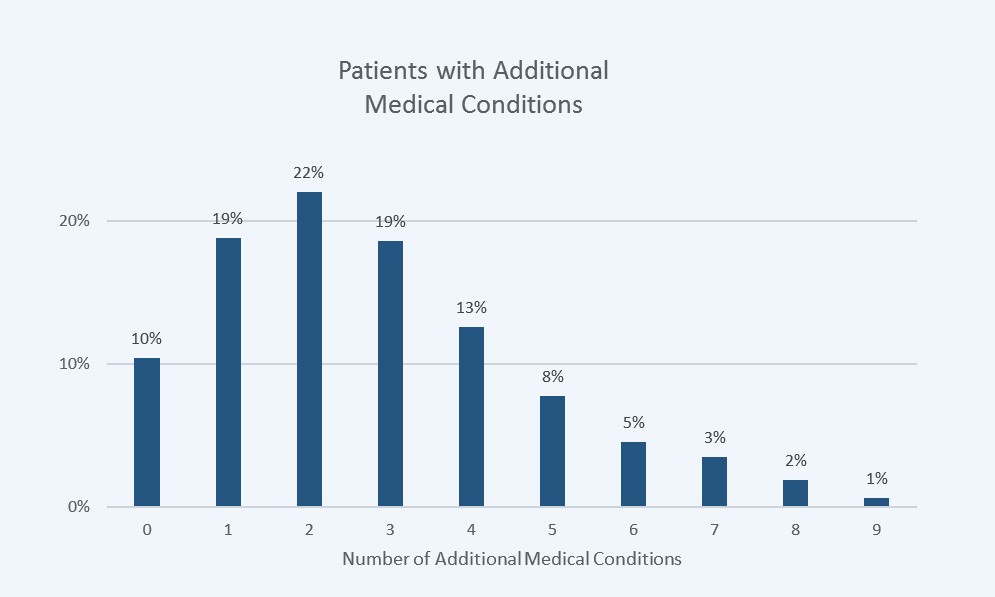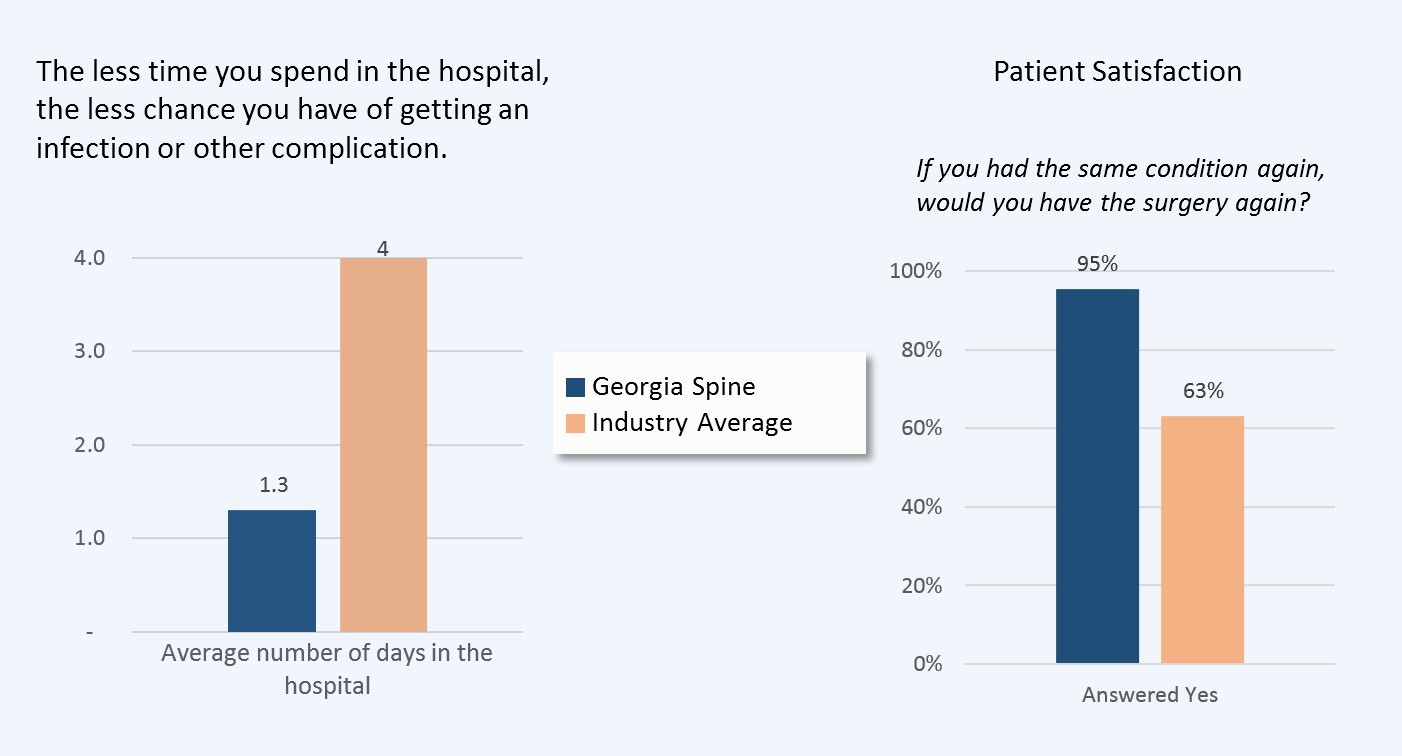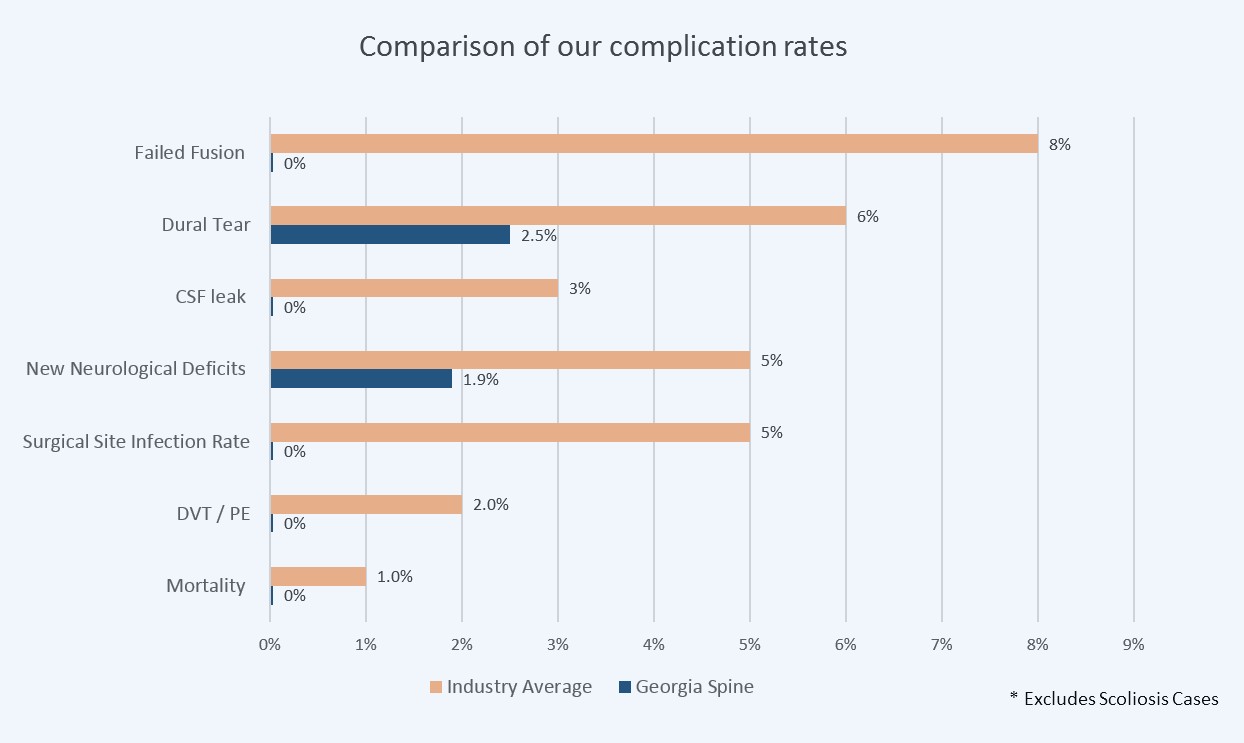Georgia Spine Report Card
Conservative Approach to Treatment
At Georgia Spine & Neurosurgery Center, we believe that surgery should be used only as a last resort, after all conservative treatments have failed. Exceptions include severe weakness or neurologic deficit (real or threatened).
The decision to undergo spinal surgery should never be taken lightly. There are both short and long-term consequences that a patient needs to understand. That is why we always emphasize to anyone who has been told they need spine surgery to get a second opinion.
At Georgia Spine and Neurosurgery, nearly 50% of patients who were told they needed spine surgery by another surgeon were advised against any surgery. Second opinions are extremely important, which is why we strive to see patients seeking a second opinion within one week of contacting us whenever possible
Complexity of our Surgical Patients
In general, the risks of performing surgery on patients that have had previous spine surgery are higher, and the surgery more complex than for those undergoing surgery for the first time. Almost 40% of our patients had previous surgeries.
Additionally, spinal cord compression greatly increases the complexity of surgery. 60% of our cervical fusion patients had spinal cord compression.
Other medical conditions, like diabetes, emphysema, high blood pressure, heart disease, etc. greatly influence the complexity of surgical procedures.
Advantages of Minimally
Invasive Surgery (MIS) Lumbar Fusion
MIS is generally less painful, results in better outcomes and far fewer complications compared to traditional open surgery.
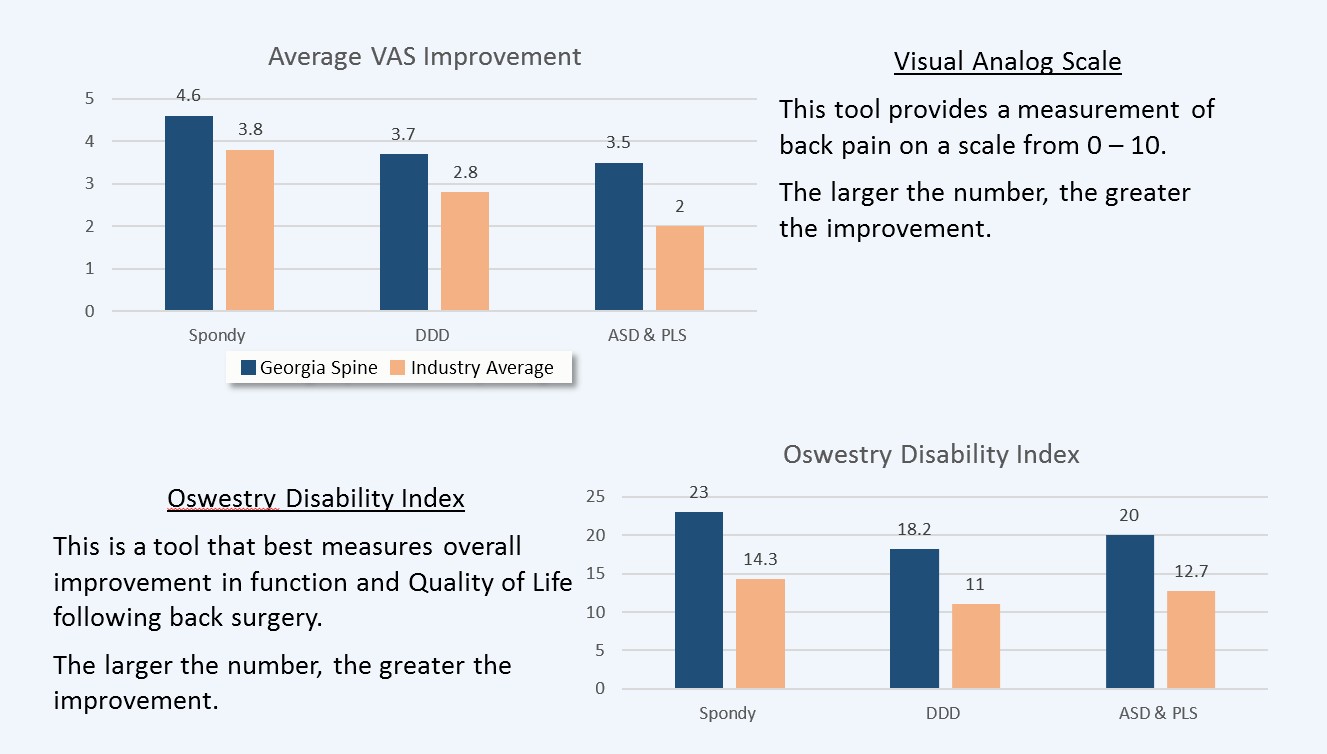 Spondy – Spondylolisthesis (slip of the spine) • DDD – Degenerative Disk Disease • ASD / PLS – Revision Surgery
Spondy – Spondylolisthesis (slip of the spine) • DDD – Degenerative Disk Disease • ASD / PLS – Revision Surgery
